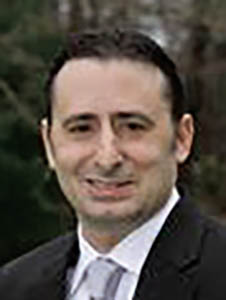
We encounter Noach in this week’s parsha, who symbolizes an entity of rest (the root word being menucha), whose chief mission was to carry on the world in its already existing state. He is about bridging the gap of generations, not introducing chidush.
However, when analyzing the Book of Genesis, we must focus on creativity, for that is the backbone of perpetual existence. And therefore it’s important to take a look at last week’s parsha and see what’s the opposite of rest.
In last week’s parsha, the first two words of the Torah are “Bereishit bara.” The first thing (Bereishit) “is” creativity (briut). This idea comports with an awesome God Who created something from nothing, yesh m’ayin (see Ramban at the beginning of Genesis).
Two chidushim are then in order when discussing the blueprint that was used for this yesh m’ayin process, the Torah (Zohar Teruma 161b).
One can take the simple approach that this world is divided between the “learners” and the “workers” and stop there. After all, this is how the Torah presents the dichotomy between Yissachar and Zevulun, as the verse says (Deuteronomy 33:18), “Rejoice, Zevulun, in your going forth, and Yissachar, in your tents.” Yissachar is supported by Zevulun and Zevulun may happily go out to work.
Zevulun, besides having the workload, is also required to be “kovea itim l’Torah” (and who, like Yissachar, gets reward for talmud Torah even as he’s working or performing anything mundane if the purpose of all of his activities are so that he can learn).
What about Yissachar, though? What is expected of him? Is there a requirement within learning to achieve something greater than just full-time study?
The following chidush can be presented.
There’s a well-known Gemara (Shabbat 31a) that says, “When a person is led in for judgment [in the next world], the first two questions God asks are: “Nasata v’natata b’emunah—Did you transact your business honestly?” and “Kovata itim l’Torah—Did you fix times for the study of the Torah?”
The Gemara in Shabbat (that declares business dealings to be the first matter judged in heaven) seems to contradict another Gemara (Sanhedrin 7a) that says, “The first thing a person is judged on is his Torah.” Tosafot in Sanhedrin (s.v. elah) asks this question, to which he provides two answers.
I believe there’s a third answer to overcome the seeming contradiction between the two Gemaras, and it’s based on the terminology used in the Gemara Shabbat. The first question is “Nasata v’natata b’emunah,” which is conventionally translated to mean “Was your business done in good faith?” However, it could also be translated to mean “Was your ‘give and take’ done in earnest?” In actuality then, the first question in Gemara Shabbat is referring to Torah and aimed at the talmid chacham to probe as to whether his shakla v’tarya was done in earnest. Therefore, indeed the Gemara in Sanhedrin is correct, that one is first judged on his Torah, and the Gemara in Shabbat gives the parameters of that judgment, challenging the give and take of the talmid chacham.
A second chidush can touch upon a second level, a higher one, that the talmid chacham must strive for to call the Torah his own.The Beit Halevi, zt”l, has an important insight on the verse in Genesis (2:2) “Vayichal Elokim bayom hashvi’i melachto asher asah vayishbot bayom hashvi’i mikol melachto asher asah.—And on the seventh day, God completed the work that He had done, and He rested on the seventh day from all the work that He had done.” He notes that the verse says God completed creation on the “seventh” (not sixth) day, implying that something was created on the seventh day as well. So he brings the midrash quoted by Rashi on this verse “What was the world still lacking? Rest. With the coming of Shabbat came (rest), and thus the work was completed and finished.”
The Beit Halevi explains that for the first six days, God was performing melacha, meaning He was creating something out of nothing. However, on Shabbat, a passive entity of rest came into being, a phenomenon that carried the world from that time into the future. Therefore, according to the Beit Halevi, the term melacha means something new, a chidush, something that was never there before.
Now, we need only go to a mishnah in Pirkei Avot to understand what is demanded from a talmid chacham and every Jew of Israel when it comes to their learning.
The mishnah in Avot (2:2) (matching the citation in Genesis (2:2)) says, “Rabban Gamliel, the son of Rabbi Judah HaNassi, would say… Kol Torah she’in imo melacha sofa betaila…—All Torah study that is not accompanied with work is destined to cease and to cause sin.”
Based on the Beit Halevi, melacha means something new, a chidush. Therefore, Rabban Gamliel is simply saying whoever’s Torah doesn’t have melacha, “chidush,” within it will be sofa betala, cease and further cause sin, for it may be said that this means one is not engaged enough in the Torah to avoid sin. Amazingly, Torah without chidush won’t survive (see Kinyan Hachag, Hamodia Periodical, October 8, 2014, page 15, “Interview with Rav Finkel, Rosh Yeshiva of Mir,” who explained that his grandfather, Rabbi Eliezer Yehuda Finkel, zt”l, would distribute money to anyone who proffered genuine chidushim).
My father noted another chidush, that the mishnah can be saying, “All Torah that has no melacha, namely, that has not been worked through, will in the end not last,” as one must work at the Torah and reach its innermost meaning.
Though Noach was a figure of passivity who bridged the gap of continued existence between generations, he did not highlight creativity that remains the theme of Genesis.
Creativity is the staple of the Creator and a path we should follow. Everyone has their own share in the Torah, a unique gift given to us, as we are “individuals” who comprise a nation.
By Steven Genack
Steven Genack is an attorney and the former editor-in-chief of the Five Towns Far Rockaway News. He works in the kashrut division at the Orthodox Union and resides today in Passaic.













